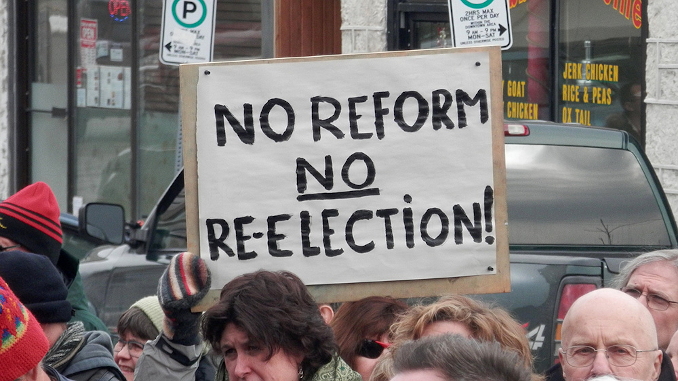
By AFP Staff
One good thing to come from the chaos surrounding the 2020 election and the spate of audits that followed in states like Arizona and Georgia is the current push for election reform legislation. Whatever happens in states that were pivotal in the last presidential election, legislators are now doing a deep dive into election integrity to ensure that only legal votes are counted in the future.
For example, the Arizona state Senate recently passed S.B. 1241, which will require signature verification on ballots, as well as a number of other security measures.
These include:
- No one is allowed near servers or hard drives that contain election-related data are stored unless the person is preapproved by election officials;
- County election officials will have to compare signatures on mail-in ballots with signatures on electors’ registration records;
- Signature corrections will be limited to a few days after any election based on whether it is federal or local;
- A list of all voters who were issued early ballots will be sent to the election board of the precinct in which each voter is registered for the purpose of checking them;
- No voting machine will have access to the Internet at any time to limit hacking; and
- Strict chain-of-custody documentation will be maintained at all times over all ballot images.
One important aspect of S.B. 1241 is that county recorders will now be obligated to refer voters for “possible investigation” to prosecutors if they fail to remedy, or “cure,” a mismatched signature. As it is now, the recorder contacts a voter if there is a problem with the signature. That voter could face charges of election fraud if they are unwilling to work with the county officials.
It is not clear currently if S.B. 1241 will be passed by the state House in the coming weeks and or will be signed by Gov. Doug Ducey (R), but some local news reports predict it will.
Republicans in the Pennsylvania state House are currently moving ahead with their own election reform measure, H.B. 1300, the Voting Rights Protection Act. The bill seeks to bring integrity back to the elections in that state after the disastrous 2020 election that included so-called “no excuses voting” where millions of Pennsylvanians were mailed ballots with little to no verification if they were even legally allowed to vote.
Among other things, Republicans want to eliminate “no excuses voting” as well as giving counties more money to organize elections, early in-person voting starting in 2025 and allowing counties to begin processing, or pre-canvassing, mail-in ballots five days before Election Day.
Legislatures in a dozen other states are also working on election integrity bills that ramp up voter identification requirements and reduce the potential for fraud.


